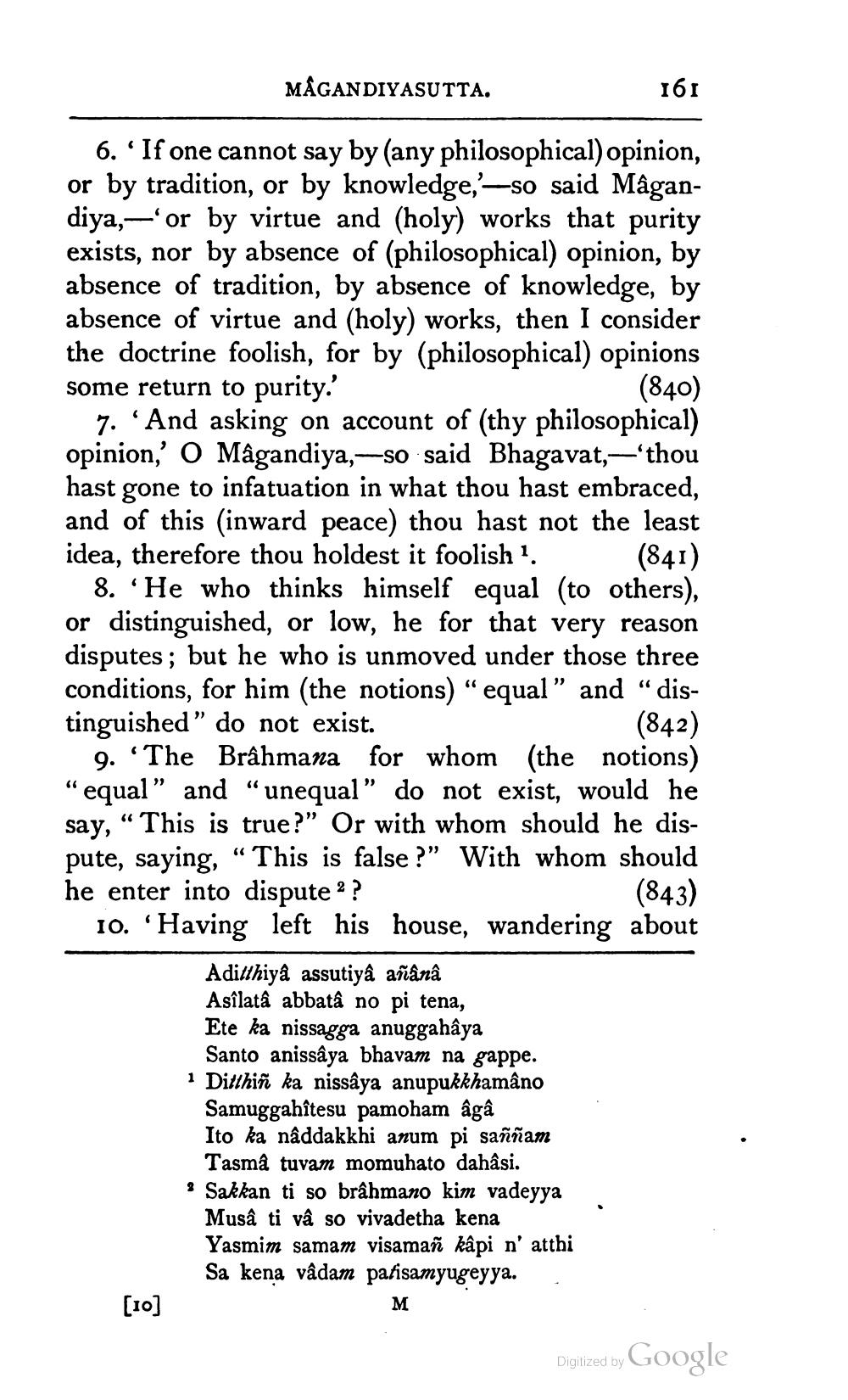________________
MÂGANDIYASUTTA.
161
6. “If one cannot say by (any philosophical) opinion, or by tradition, or by knowledge,'—so said Mâgandiya, -'or by virtue and (holy) works that purity exists, nor by absence of (philosophical) opinion, by absence of tradition, by absence of knowledge, by absence of virtue and (holy) works, then I consider the doctrine foolish, for by (philosophical) opinions some return to purity.'
1 (840) 7. 'And asking on account of (thy philosophical) opinion,' O Mâgandiya,-so said Bhagavat,—thou hast gone to infatuation in what thou hast embraced, and of this (inward peace) thou hast not the least idea, therefore thou holdest it foolish? (841)
8. “He who thinks himself equal (to others), or distinguished, or low, he for that very reason disputes; but he who is unmoved under those three conditions, for him (the notions) “equal” and “distinguished” do not exist.
(842) 9. 'The Brâhmana for whom (the notions) “equal” and “unequal" do not exist, would he say, “This is true?" Or with whom should he dispute, saying, “This is false ?” With whom should he enter into dispute ? ?
(843) 10. Having left his house, wandering about
Aditthiyâ assutiyâ añânâ Asîlatâ abbatâ no pi tena, Ete ka nissagga anuggahaya Santo anissâya bhavam na gappe. 1 Ditlhin ka nissaya anupukkhamâno
Samuggahîtesu pamoham âgâ Ito ka naddakkhi anum pi saññam
Tasmâ tuvam momuhato dahâsi. 3 Sakkan ti so brâhmano kim vadeyya Musâ ti vâ so vivadetha kena Yasmim samam visamañ kâpi n'atthi Sa kena vâdam patisamyugeyya.
[10]
M
Digitized by Google




